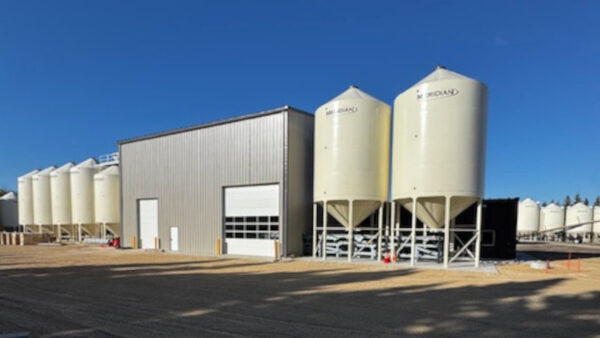Increases will ensure administration of Canada’s national seed crop certification program and help CSGA plan for the future.
The Canadian Seed Growers’ Association (CSGA) will begin 2022 with a new fee schedule recently approved by members at its special general meeting held virtually on Nov. 24, 2021.
The meeting was held to allow members to vote on a new fee recommendation to maintain the organization’s sustainable budgets and operational efficiency, Executive Director Doug Miller said.
CSGA’s current transitionary fees were to expire on Jan. 31, 2022 and could not be extended. Without a new fee schedule approved by members, CSGA would have reverted to the 2019 Fee Schedule, originally approved in 2016.
Administering one of the largest — if not the largest — seed crop certification systems globally, CSGA collects fees to deliver on its regulatory mandate to provide a national program for seed crop certification.
“With only 12 full-time employees, we certify over 16,000 seed crops every year, of over 2,200 different varieties,” Miller said.
Miller also noted that strategic investments are required to ensure positive outcomes in Seed Regulatory Modernization and implement the CSGA 2.0 Business Plan vision. CSGA will also rebuild its reserves, as some were used to finance parts of the Seed Synergy collaboration project.
In September, CSGA opened a six-week consultation and invited members and stakeholders to comment on a new fee proposal and an inflationary fee adjustment policy. After the board of directors reviewed the feedback, CSGA adjusted the Group 1 and Group 2 acreage assessment fees and dropped the inflation piece, Miller said.
In developing the new fee schedule, CSGA considered several guiding principles, Miller said:
- The cost to certify the crop, which goes beyond just the issuance of a crop certificate.
- The necessary infrastructure. Certain crop kinds require different infrastructure, which ranges from standalone technology platforms, contra-season production frameworks, to more complex certification requirements.
- Increased cost of doing business.
- Business continuity in light of the pandemic.
A common question received during the consultation was why there are different acreage assessment fees for different crop kinds. Miller said acreage assessment fees are based on the costs to certify that crop, the necessary infrastructure, and to a lesser extent, an ability to pay.
“The cost to certify a field of hybrid corn or canola versus a field of barley is drastically different. Hybrid corn has up to four inspections, a standalone application process, and more complex certification requirements. Barley has only one inspection. At the end of the day, all crop kinds are seeing fee increases from the fees approved by the membership in 2016,” Miller said.
For hybrid canola, the revised fees are $3.25 per acre (up from $2). For hybrid corn, the new fee is $3 per acre (up from $2). These fees reflect the cost it takes to certify these crops and the necessary infrastructure, Miller said.
For hemp and soybeans, the new fee is $1.60 per acre (up from $1.30). Both of these crop kinds take more time and resources to certify, Miller added.
“For soybeans, we are looking at about 4,500 to 6,000 fields being appraised within a three-to-four-week period and with high levels of variants, which increases the time it takes to appraise the crop.”
For forage grasses and legume crops, the new fee will be $1.17 per acre (up from $1.10). For plots, some minor adjustments were approved. Select plot fees remain at $60 per plot. For Breeder plots, a fee of $80 per plot (up from $60) was approved due to additional effort involved in processing Form 43s.
No changes were made to CSGA’s current base fee of $240 for the first member on an account and $25 for each additional member.













